International Imaginarium For Word & Verse (September 27, 2022)
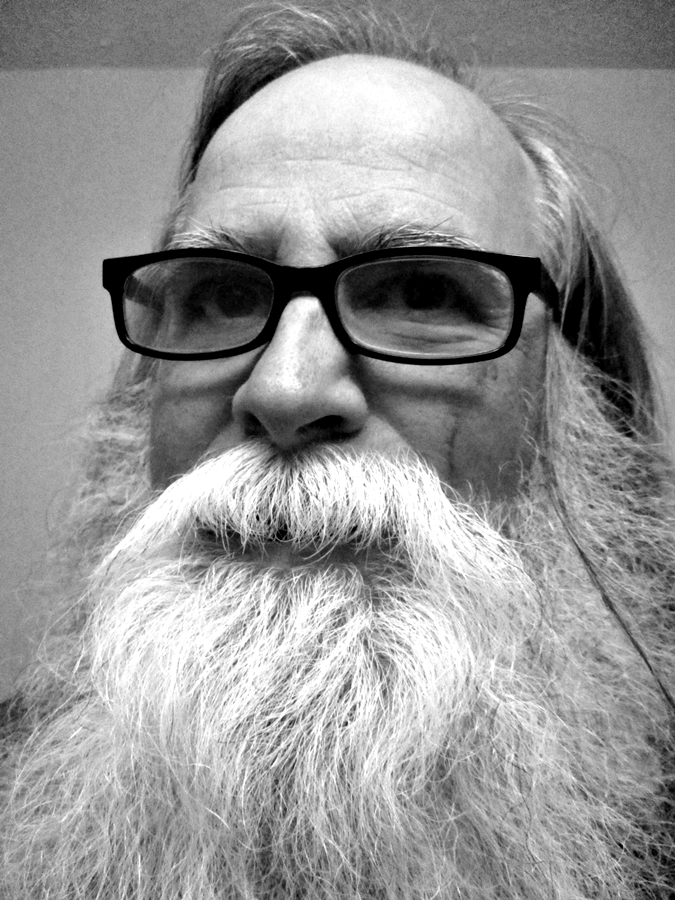
PAUL: Hey there everybody! Good evening and welcome to our second edition of the International Imaginarium for Word and Verse on this lovely autumn evening of September 27th, 2022 (I can’t believe that summer is already over and fall has begun)!
As I gaze out into the audience, I see some of the familiar faces of our regulars are missing tonight, but I’m so grateful to everyone present for taking time out from your busy schedules to be here to help us celebrate poets and poetry. We have such an incredible feature for you tonight, the multi-talented writer, poet, lyricist, playwright, and theatrical director James B. Nicola who grew up in the Worcester, Massachusetts area, but now living in New York City. I will be inviting James up to the stage for the customary Imaginarium interview in just a few moments, but before I do, I would like to officially open the September edition of the Virtual Poetorium with a poem appropriately entitled “September” written by the little-remembered poet Edward Bliss Reed, who is probably best known for being an English professor at Yale University and the editor of numerous collections of Christmas carols…
September
Crickets are making
The merriest din,
All the fields waking
With shrill violin.
Now all the swallows
Debate when to go;
In the valleys and hollows
The mists are like snow.
Dahlia are glowing
In purple and red
Where once were growing
Pale roses instead.
Piled up leaves smoulder,
All hazy the noon,
Nights have grown colder,
The frost will some soon.
Early lamps burning,
So soon the night falls,
Leaves, crimson turning,
Make bright the stone walls.
Summer recalling
At turn of the year,
Fruit will be falling,
September is here.
—Edward Bliss Reed
And now on with the show! Since there may be some of you not familiar with tonight’s feature James B. Nicola, I’d like to let tell you a little more about him before I call him to the stage…

James B. Nicola’s poems have appeared in the Antioch, Southwest and Atlanta Reviews, Rattle, and Poetry East. His nonfiction book Playing the Audience won a Choice award. His seven full-length poetry collections are Manhattan Plaza (Word Poetry, 2014), Stage to Page (Word Poetry, 2016), Wind in the Cave (Finishing Line, 2017), Out of Nothing: Poems of Art and Artists (Shanti Arts, 2018), Quickening: Poems from Before and Beyond (Cyberwit.net, 2019), Fires of Heaven: Poems of Faith and Sense (Shanti Arts, 2021), and Turns & Twists (Cyberwit.net, 2022). He won a Dana Literary Award, a People’s Choice award (from Storyteller), and a Willow Review award; was nominated twice for a Pushcart Prize and once for a Rhysling Award; and was featured poet at New Formalist. A Yale graduate as well as a composer, lyricist, and playwright, James has been giving both theater and poetry workshops at libraries, literary festivals, schools, and community centers all over the country. His children’s musical Chimes: A Christmas Vaudeville premiered in Fairbanks, Alaska, where Santa Claus was rumored to be in attendance on opening night.
Please welcome to our virtual stage, James B. Nicola!
PAUL: Well, James, please have a seat, and make yourself comfortable. Thank you so much for being here! Although I know you currently live in New York City, I understand that you are originally from the Worcester area. Could you tell us a bit about your ties to Worcester County and your early years here?
JAMES: I was born at Fairlawn Hospital in Worcester. (After which they closed the maternity ward. Badoom chick. But it’s true!) Grew up in Holden, graduated from Wachusett Regional High School. Went to Clark for two years–loved it–where I actually took a poetry course guest-taught by the very inspiring Michael True, founder of the Worcester County Poetry Association, little suspecting the seeds he was planting.
PAUL: What and when was your first exposure to poetry?
JAMES: I grew up with two teachers for parents, so our half-finished basement walls, the kids’ playroom, were lined floor-to-ceiling with books. My mom read to us kids all the time until we could read by ourselves. So I loved the giant Golden Treasury, I think it was called, with all those fabulous Mother Goose nursery rhymes and Brothers Grimm horror stories. I still remember the illustration of the ogre accompanying “Jack and the Beanstalk”! Robert Louis Stevenson’s A Child’s Garden of Verses was soon added, which can probably claim to be actual “poetry” as opposed to nursery rhymes. All before kindergarten.
PAUL: Who or what first inspired you to start writing poetry yourself?
JAMES: Age 6 or 7. I was in second grade. Worcester was contemplating a zoo. I loved animals, of course, and so wrote a poem in support of it–which got published in The Evening Gazette as well as The Worcester Telegram. What a thrill.
PAUL: Could you tell us something about your personal process for writing a poem (especially how you usually begin)?
JAMES: Different each time. Lately, I let the idea for a poem burn awhile, days or weeks, until I “can’t not” write the thing. Then many drafts (at times, over as many years) until it gets published.
PAUL: Since you are both a playwright and a poet, could you explain how your process for writing drama is both different and similar to composing poetry? Do you find one easier to do than the other?
JAMES: How anyone gets from Nothing to the first draft–Something–is still a mystery to me. Then in the process of rewriting, blind Inspiration is joined by Instinct and even Technique, let us say. While a full-length play, film, or dramatic novel must generally create suspense, a poem or song may simply generate movement, not always “dramatic suspense” per se. With most prose (including “experimental” novels where perhaps plot is not paramount) we try to keep the reader turning the page, that is, maintain involvement. Suspense, movement, and/or involvement. Not quite synonyms, but all worth keeping in mind.
As for how to get there: plays and other interpretive, collaborative genres get new life with readings, rehearsals, and then performances. Poems and prose require, for the most part, the isolation of the author. But in all cases, an openness to the input of fresh eyes and ears is key–a reader’s, an audience’s, or, when the latest draft’s taken out of “the drawer” after a few months, one’s own.
PAUL: In a somewhat related question, as both a poet and a lyricist, what do you find are the differences between writing lyrics and a poem?
JAMES: Almost every song lyric employs repetition of words (catchphrases), verses (refrains) and/or sounds (rhyme). When one doesn’t, which is rare, we call it “through-composed.” (“Much More” from The Fantasticks, for example). Poems, today, are often the converse, and when one does use repetition, it is often labeled “metric,” “rhymed,” or “formal.” Then there is the indescribable parameter of “pitch”–not a note on the scale, in this case, but how “high” the language is. Street talk, then stage language, then charged stage language which might call for an underscore, leading to the patter-like verse of a song, and then its chorus. In opera, aria may be pitched even higher. A single poem can have different sections with varying pitches, too. The tension or balance between the everyday/casual and the heightened/special has been a particular concern of the last few generations of writing, with both song lyrics and poetry.
PAUL: Because of your theatrical background, I’m curious about your opinion on how poetry should be presented when read out loud to an audience? I know some poets like to “perform” their poetry while others feel any performance should be avoided so it won’t distract from the poem itself…
JAMES: I have coached actors performing poetry, and poets presenting their own pieces. It’s a delicate balance, how to convey compellingly, but not “upstage” the writing. Then there is “performance poetry”–slams and whatnot–that has grown, where the opposite values obtain, so there are no fast rules. But Hamlet’s advice to the players is the best advice for both cases. Speak clearly and calmly but as quickly as possible (“trippingly”) so as to be understood. With poetry, of course, there’s white space you want to communicate, not just the words, so you won’t necessarily go at the same speed as, say, dramatic dialogue. Still, I am often wary of “milking the silences”; I’ve seen video of myself doing that, so I’m sensitive to it.
My second most important advice when coaching actors: Personalize. Everything. Poetry performers don’t have to have the emotion or experience, though. It may be more effective to think of remembering, recollecting (re-collecting), and then relating it to the audience by speaking specifically and fully–projecting thought and image, not just words and sounds. Two old adages to actors apply to poetry performers as well: (1) “Don’t let them catch you acting,” and its corollary, (2) “Don’t let them catch you enunciating!”
PAUL: Who are some of your favorite poets, playwrights, and lyricists, and can you tell us why you like them?
JAMES: Poets—Dickinson. For the 20th century, E. E. Cummings, who capitalized his name, by the way. They are both metaphysical poets. I love the Metaphysical poets of yore, too—Donne, Herrick, et al.
Way up there, and too often overlooked—Thomas Hardy, Howard Nemerov, Robert Penn Warren, Edwin Arlington Robinson. Others on my list of favorites are not overlooked. Yeats and Frost, for example.
From the eighteenth century (a period not known for poetry or drama, but philosophy)—Check out Alexander Pope. He could make alexandrine couplets (twelve syllables per line) sound fresh and amazingly natural, which is quite difficult in English–and lace them with wisdom, to boot.
Playwright—William Inge. Like Chekhov. No villains. Just folks. How these two generated conflict, plot, and climaxes–wow. Really like life, and yet so much more.
Lyricists—Frank Loesser and Sheldon Harnick. Check out The Most Happy Fella and She Loves Me, and you will see why. Human, clever, you can’t listen to them too much, and yet their lyrics are always of a specific character and situation, distinct from any other.
PAUL: I understand that your book Out of Nothing: Poems of Art and Artists is a collection of your ekphrastic poetry. Could you explain to us a bit about what ekphrastic poetry is and how this book came about?
JAMES: Only some of its poems are ekphrastic, in fact. Others are about artists, or the process of art and creativity, while ekphrastic technically refers to a poem about a particular work of art, including a description. This particular collection also includes pieces about music, architecture, cinema, dance, stained glass, and so on. Several came out of the Worcester Art Museum, where I’ve been going since I was a kid.
PAUL: What do you feel is your primary motivation for writing?
JAMES: Caring.
PAUL: Are there certain subject matters and themes that you tend to explore in your plays and poems?
JAMES: The oneness of us all. The human community. The tragic course of cruelty. That it is so much better–and so much easier, too–to be kind. So let’s try it, people!
Lately–past few decades in fact–I have been intrigued by “the nuts and bolts of love.” What are we supposed to actually DO, say, in a hairy situation, when you can’t please everybody? When to demand someone’s car keys, for example–party guest for the evening, or elderly parent for the rest of their life? When do you butt in and do something about it when you hear screams next door, nightly? When does Silence become Complicity? Or Denial become Conspiracy? And when do you shout this truth from the rafters, and when do you deploy other tactics?
PAUL: Do you have a regular writing routine, and if so, can you describe it to us?
JAMES: It has varied over the decades. For years I would start before dawn and come up with something new every morning. Now I spend lots of time tweaking–or overhauling–material, long into the evening. Since Walt Whitman published several versions of Leaves of Grass over the course of his life, perhaps I am in good company.
PAUL: What would you consider to be your perfect writing environment?
JAMES: Wherever works for you. I am lucky to have a 45th-floor terrace overlooking the Hudson River. But restaurants, coffee shops, library reading rooms, park benches, beaches, even street corners have proven helpful in the past.
PAUL: Could you tell us about any poetry, plays, or other writing projects you are currently working on?
JAMES: Just finished my first novel. I am now working on a collection of personal essay/memoir pieces. Two full-length poetry collections forthcoming: Natural Tendencies (nature poetry, from Cervena Barva Press) and Tower of Babel (apocalyptic poems, from Hiraeth Press).
PAUL: What advice would you give to someone who is just starting out writing poetry?
JAMES: Let us try to make the world a better place, not a worse place. And when we come across, or hear about, those who want to make it a worse place, let us fight them with everything we’ve got, including words. But we must all try to find a convincing, inspiring, winning way.
And care about excellence as both a person and a writer. So if you are ever so fortunate as to get feedback–write it down, longhand, in a journal, and keep those comments forever. You can always decide not to use them, but you might finally understand some inscrutable insight a couple weeks down the road–or a couple years.
PAUL: My final question for the evening is there any question that you would like to answer about your life, career, writing, or anything else that I have failed to ask you during this interview? If so, please answer it for us…
JAMES: Compassion, empathy, encouraging kindness while combating meanness in all its forms, which means helping our fellow human beings look in the mirror and really see—and say—what is there: that, to me, is what writing is all about. And reading.
In other words, the Golden Rule is as radical today as it must have been in the Classical world. But while its wisdom and humanity are undeniably golden, it is up to all of us how much it rules.
PAUL: Well, I guess that concludes the interview portion of our program. James, thank you so much for such thoughtful and informative answers. Now, folks, please enjoy the poetry of James B. Nicola…
JAMES: The following poems are selections from my seven full-length collections: Manhattan Plaza, Stage to Page, Wind in the Cave, Out of Nothing, Quickening, Fires of Heaven, and Turns & Twists (just out).
These first two poems are from my first published book Manhattan Plaza (Word Poetry, 2014):
Turning the Corner
There never is an end. Each city street
you go down joins another, and there is
a chance, depending on the turn, you’ll meet
your future. There’s romance, there’s business,
inconsequence or ignorance, and yet
always a view that you pass by or through.
The question: will you traffic to forget,
or to experience the turn, the new?
A danger may await beyond the forks
as well. But whether going fast to spend
more time there, or slow to enjoy the way
you get there, navigating in New York’s
a myriad-fingered passage, each street’s end
another to begin; each day’s, a day.
—James B. Nicola (from Manhattan Plaza)
The Sack Man and the Suitcase
Santa Claus, we called him.
He reigned on a Bryant Park
northside bench
for years. I’d jog, he’d wave,
and I’d wave back.
And many spoke to him.
The year he disappeared
with all his sacks
a guard told me he’d found city housing.
We’d called him Santa Claus, although he’d worn no red.
*
I’ve started jogging at pier 84.
There’s a long wooden dock
over the Hudson, new this year,
not too bad for the back or the knees.
Last month I saw a suitcase on wheels
locked to a temporary chain link fence.
The next week, saw it again. No person.
Whose was it?
Did I recognize the face who’d been there,
among all the strollers and sitters,
both times?
It was attached with a bicycle lock
so maybe the owner wasn’t around.
Though he should be careful, what with security and bomb scares and all.
*
Then only two weeks ago I saw it being wheeled by
a dangerous dark character in a black-and-blue sweat suit.
The first time, two weeks earlier, he’d been sleeping
on a bench, I think I recall.
I do not merely notice him this time, though: I nod.
His face is muscular, sleek, and ignores everything.
*
Last week, on my arrival, same sweat suit.
I say Hey, and almost wave. His eyes are open
but the rest of him ignores me, glistening darker in the sun.
*
The other day I get there, I’m twenty yards from him.
He’s listening to 1010 WINS. I figure
he’s no Santa Claus holding court.
And he looks up, face lit, and waves at me!
I was ready to ignore him, but smile, salute, and jog.
There are Asian fishermen
who tend three lines and catch crabs, gathering crowds.
We applaud each catch.
*
Today the suitcase man, not Santa Claus,
holds the net for them, it’s on a long pole. I clap
at the first catch of the day, just after dawn.
I don’t know anyone’s name but several speedwalking couples
wave now, as does the suitcase man.
*
We have become New York.
*
I don’t know if I should ask the suitcase man
if he knows about all the lists he could get on
for city housing.
You don’t want to be presumptuous, but you do want to help.
Maybe next week we’ll engage in conversation.
And I wonder where Santa Claus is now
and if he’s happy
and would he like to talk to the suitcase man.
—James B. Nicola (from Manhattan Plaza)
These next two are from Stage to Page: Poems from the Theater (Word Poetry, 2016):
Educational Drama
Their motives for trying out, varied as
the number in the hall, were never known.
Not to themselves, not to each other.
But in the end, it was the humpy physics
major who got cast, not as Paris
(a perfect role for some fit novice), nor
as one of the scene-one rowdies who bite
thumbs and jeer (all roles optimally served
by well-groomed thighs as well)—but Romeo;
and Juliet was an acne’d shy thing
who’d signed up for the class just for the credit;
while it was the serious actors who
played Tybalt (who dies early), Benvolio
(who’s required to listen to Romeo for several acts),
Paris, and Lady Capulet. The Nurse
and Friar were four-eyed freshmen, surely virgins,
from outside the department, chemistry
and anthropology. Lord Capulet,
self-styled dweeb, could barely speak! The stars
of the department, many, had to dance
at the masked ball, dressed down by the swishy Prince
(cast sibilant, for the director was
a feminist—and Lesbian, some said).
And some of them were barely seen again,
save for the crowd scenes. Unbelievable.
Well, the production seemed so out of whack
that the chairman of the drama department dis-
invited the respondent from the Kennedy Center
and uncast majors sneered; those cast, knew better.
But by week two you couldn’t get a ticket.
The science majors filled one house, then told
their friends who told their friends who told their friends.
An article got published, how the play
was life itself. The President even came
and wept, it was reported. Who cares? More
important is what’s happened to the cast
in the decades since that destined travesty.
The Friar married the Nurse. They’ve seven kids
and work together in a research lab
testing new cures. The stutterer Capulet’s
a senator. Tybalt volunteers vacations
for Doctors Without Borders. Of the gangs,
two—Balthasar and Samson—work for Greenpeace;
Mercutio, Benvolio, and Gregory
for Legal Aid; while Paris and the Prince
have moved to Massachusetts where they’ve married.
Juliet and Romeo have not
appeared on stage since then but live in town.
Tuesday nights they answer phones for a hotline
from 8-12, the calls continuous
so neither has the chance to say much else.
But I helped out one Tuesday before Christmas,
a dark time, and I think I saw them blush
when their eyes met between synchronized calls.
She is a beauty now. And he is kind.
Their voices have grown useful saving lives.
And Rosaline, who had no lines to speak
in Romeo and Juliet, appears
in movies. You would recognize her name.
—James B. Nicola (from Stage to Page: Poems from the Theater)
1985
The phone rang weekly in that early age
of ringing, wringing out ammonia tears,
when the plague was new. Actors of too few years
and roles were lost, too many ghosts of stage
and film too quickly made. Now, calls from lover,
spouse or sibling are rarer, but not over.
Were you to phone today and tell me that
you’d found my number starred beside my name
in his black book, and thought that you should take
the time to dial me up and tell me what
he’d thought of me, that I was not the same
as others he’d known, I’d ask When’s the wake?
and tell you to be glad that you’re alive.
I might not have, in 1985.
—James B. Nicola (from Stage to Page: Poems from the Theater*)
*originally published in Manhattan Plaza)
These are two poems from Wind in the Cave (Finishing Line, 2017):
Stupid Questions
There are no stupid questions,
only stupid people
who say stupid things
like “That’s a stupid question,”
and make a loved one miserable
as I just did.
—James B. Nicola (from Wind in the Cave*)
*originally published in Willard & Maple)
I Didn’t Mind
I didn’t mind it when you called me Dirt,
for dirt is soil (my bed is rich and soft)
and tears are seeds. (Come, show me where you hurt.)
The first time, we were teen-aged. Green. I flirt-
ed back. You didn’t notice. I was daft
and didn’t mind much if you thought me dirt
(which in a way I was). How you avert-
ed every glance, then. But, though Art and Craft
turn tears to seeds, the planting ought to hurt,
some, no? (“No pain, no gain.”) So every curt
retort of yours, I noted as I laughed,
but didn’t mind, much, learning to sling dirt
back, while you learned to take it like a sport.
Till now. The “Great Love of your Life” has left.
What tears! (What seeds!) But you would never hurt
this much, you crowed, once, didn’t you, My Heart?
Yes—that is how I’ve thought of you. How oft-
en? Always, since that day you called me Dirt.
Such tears are seeds. Come. Show me where you hurt.
—James B. Nicola (from Wind in the Cave*)
*originally published in Grey Sparrow Journal
Here are 3 poems from Out of Nothing: Poems of Art and Artists (Shanti Arts, 2018)
Jump
The man who tried to jump, I never saw,
quite. Intermittent voices from the crowd
in front of Notre Dame that morning yelled
in English, or American, and loud
enough for God to hear, the word Jump.
By the time I’d gotten there, the mass had swelled.
I don’t believe he heard them. Then The Law
showed up and coaxed him duly from the tower
where he’d been teetering about an hour.
My first day in Europe. I had arrived
at Orly shy of dawn. By Notre Dame
it was the beginning of the end, and soon
the crowd dispersed. The soul concerned survived.
And none below could say the fellow’s name.
But he’d been brought in safely from the rim
and there would be another day for him.
And when I walked inside, the chimes rang noon
as if in joy or celebration. True,
they did this daily, hourly. Still, when I
looked up in the expanse of must and light
and heard the echoes, plaintive as a sigh,
of steps and whispers, I was overawed—
my first cathedral ever, see—and knew
why centuries ago believed in God.
The vastness. The design of day and night
co-mixed. The ogives to enhance the height.
All made me—us—the sort just saved—so small
I never thought of him again. Till now,
in my private cathedral shy of dawn
when night’s soft Nothing opens into All.
And that day, I (at last) reflect upon.
How looking up turns one within. And how
a soul can jump and land, some later age,
not on the stone-paved square, but on a page.
—James B. Nicola (from Out of Nothing: Poems of Art and Artists)
Water Lilies 1
Today I’ve wakened on the porch to everything:
a bussing breeze and a rippling pond and water lilies and
coffee and mm it’s good. You see, the mug
I’m using has been glazed with a Monet painting.
And when I sip I bring them to my lips
which makes the coffee taste better, or seem to, anyhow.
The first time I woke up to water lilies
was in the middle of the lake where Dad and I would fish.
He’d wake me up in pitch black before school
and everything, the boat already on
the car, we’d tied it up the night before
together, and we’d row out for the bass,
better than yellow perch. I’d doze and wake
again, roused by a ripple or the sun
or a nibble or his voice, surrounded by water lilies
and shimmer and gurgles and trees, so many that I dreamt
I had been drinking them, till I came to,
weekday mornings, till I was ten or so.
One Saturday when I was twelve I went
fishing with Harry. His mom drove us. We fished
from shore. I pointed out the water
lilies yonder, in the middle of the lake,
but they did not surround us, they were something
far away, so he was unimpressed.
We caught a couple of perch too small to keep.
Occasionally, at a park or arboretum,
I will pass by a pond with a wooden bridge
in a Japanese theme, stocked with goldfish or carp,
and stop awhile because of the water lilies
expecting something, never knowing what.
This morning dosing coffee from a mug
I love the way a ten-year-old will love
the least important thing, I feel the sun
pop up as if we’d loaded up the boat
and the bait, and I have woken in the middle
of the lake and the lilies, having dozed in the dawn,
and am waiting for a bite, and everything.
—James B. Nicola (from Out of Nothing: Poems of Art and Artists*)
*originally published in Deronda Review
I’m proud to note that the next poem was selected to honor Worcester County’s world-class icon museum in Clinton:
Icon
They both seem carved in ink, then colored in.
The Infant on her shoulder holds a scroll.
What literary Child is this, graven
to read—and what words—to the passing soul?
And was the artist risking mortal sin
depicting the Divine, or was, in fact,
the divine who sponsored the commission
transgressing a Commandment by this act?
And what is more, back in Byzantium,
as for a time in Egypt, icon mak-
ers had their hands chopped off, eyes gouged, and some
who broke the tenet were burned at the stake.
I’m riveted before the icon, won-
dering about the world of violence
and then about the mother and the Son,
his reading, for so long, in such silence.
—James B. Nicola (from Out of Nothing: Poems of Art and Artists*)
*originally published in Illuminations
The next 2 poems are from Quickening: Poems from Before and Beyond (Cyberwit.net, 2019):
Twins
I grew.
It hurt.
I knew another spurt,
a shot,
was due.
And I would rather not.
But Pain
and Change
have rung to rearrange—
as twins
again
conjoined as man and sins.
Change used to be the bully,
though Pain was often worse.
Now that I’m me more fully,
they’ll be the reverse,
I hear. They buzz.
I slam and lock my door.
Can’t What-I-Was
Be what I am, anymore?
—James B. Nicola (from Quickening: Poems from Before and Beyond*)
*originally published in Blue Unicorn)
Somewhere, Next Fall
As Rome fell, you and I were somewhere, then,
as chromosomes and genes, which found a way
to become what we became, and rise again.
As Eve and Adam left the first garden
we started to become. And on the day
the Christ died, you and I were somewhere, then.
Through every war—yea, any time that men
and women have wreaked harm, or gone astray,
whatever we are, was, and rose again.
And here’s the hope: That we have withstood ten
thousand million losses, and still can say:
If the world ends, we shall be somewhere, then,
able to act, or not act. Too often,
it has been not, and there’s been hell to pay.
Yet whatever we were, managed to rise again!
Our issue—heirs, art, rage—shall be there when
the end to come, comes; therefore I inveigh:
That Fall shall find us somewhere, too—and then
whatever we become, must rise again.
—James B. Nicola (from Quickening: Poems from Before and Beyond)
These are 2 poems from Fires of Heaven: Poems of Faith and Sense (Shanti Arts, 2021):
Lamp Stand
I learned when I was six and Sundays went
to Sunday School as well as mass, that this,
when lit, was the eternal flame and meant
that He was present in His house, that church.
No sooner had I learned this magic lesson
one Sunday morning than the Saturday
that followed, at my first confession (this
the one time that I had to make up sins,
for looking down the list I feared that none
fit me and we were all required to go
but for the life of me and to this day
I could not think of any sins that day
and so I lied in the confessional,
made up all sorts of wild infractions that
the next week I’d have lies I could confess.
Which I did. But I’m ahead of myself) . . .
On this fall Saturday, the day that marks
the beginning of the end of the world
which every day since then has, too, I think,
I rode my bike down to St. Mary’s, way
too early for confession, with my pal,
a Protestant named Harry, my best friend,
in fact. I figured I’d show him around
and at that time churches were never closed,
so I was told. What was I thinking then,
that I’d impress him, get him to convert
and save his soul? I don’t think so;
I didn’t learn till later who was damned
for not being a Catholic. I was six,
remember, and I think that what I thought
was everything about the place was cool,
and how much I too wanted to become
an altar boy when I was a big kid.
So down we biked and in we went, at 4—
confession was at 5—nobody there
but the huge doors were open, so I showed
him all around, the stations of the cross,
the vestry, and the altar where no boy
could set foot, ever, save the altar boys.
The walls pure white, the sunlight through the stained-
glass windows magic his church did not have.
Then I showed Harry how to dip his hand
in holy water, cross himself, and say
I’th’name and all. We waddled to the front,
where I then taught him how to genuflect
and kneel, and concentrate, hands clasped, and pray.
When I opened my eyes a scream came out
of me, for there, the flame of God was OFF!
Now this was the first crisis of my life—
the smallest and the largest, I believe.
Tear-drenched I shouted, Father! Father Ryan!
Where are you?! He appeared. What’s wrong, my son?
He’s gone! Who’s gone? God’s gone! What? Father, look!
And this I could not fathom at the time:
he smiled! Never you worry. Who is this?
I showed him Harry, unimpressed, I guess,
since he never did turn Catholic, but then who
would after this fiasco, at age six?
Then Father sent us off to play outside.
We rode our bikes around the parking lot.
It was a great, safe parking lot for that,
with tree clumps and the parish house to circle
around. No cars in the way. We had a ball.
And when the Catholics started to arrive
to expiate, Harry waited on the grass
as I went in to fabricate my faults
and sure enough, the flame had been restored
and never since then have I seen it off
till yesterday. I’d left the church at twelve,
remember, and I never did become
an altar boy—they did away with them
before I came of age—and since have learned
about such things as symbols, but to me
that flame was not the symbol of, it was.
So when I read in the Globe that my parish
was closing and would auction off its things
and Father Ryan had been sent to jail,
I went and won myself this gaudy lamp stand.
And it now stands here, in my entryway.
I bought the oil, too, and there’s ample wick.
What do you think—light it, or leave it cold?
—James B. Nicola (from Fires of Heaven: Poems of Faith and Sense*)
*originally published in Mission at Tenth)
Shortcoming
I have a shortcoming that
makes me a nasty, ungrateful creature,
I know.
My gifts abound
and I have so much to be thankful for,
and All that breathes is holy, yes I know,
but I have some limits.
One, the slug.
Two, the cockroach.
Add to this the tse tse fly.
Then Hitler, and the like.
They cannot be indulged
as Adam and Eve did the Serpent,
who, after all, was but an instrument
voicing the will of God.
The critters on this list, though—
I cannot believe they are
from God at all, although I know it’s so.
And so I squash them—or wish that I could—
worse, am unbothered by this shortcoming.
—James B. Nicola (from Fires of Heaven: Poems of Faith and Sense*)
*originally published in Concho River Review
My final 3 poems will be from my latest collection, Turns & Twists (Cyberwit.net, 2022)
She Was So Good
At work I used to stand right next to her.
College, work-study, dining hall. We would
dish it out, side by side, together.
She’d gone to Seabrook to protest. The stir
made national news. She inveighed, You should
have been there. Since I stood right next to her
I didn’t argue. Some of my friends were
arrested there and proud of it; they stood,
and dished it out, side by side, together,
those seniors. They invited me, oh sure,
but only as they boarded the bus! I could
have gotten arrested right next to her,
but it was the first week of September
and I was a freshman. She was so good
to put up with me, side by side, together.
I told her I’d be happy to treat her to dinner,
when she showed me how to sleeve a loaf of bread.
Next day at work I stood right next to her
and dished it out, side by side, together.
––James B. Nicola (from Turns & Twists*)
*originally published in South Carolina Review)
The Great Party
In last night’s dream I was five years old again
And went to a friend’s sixth birthday party.
At the end of musical chairs, a game
We all already knew well how to win,
The mother frowned and told the winning boy,
“I’m so sorry,”
Then kissed him on the forehead, shook her head,
Kissed each of us in turn, as if we all
Had boo-boos on our heads. “Perhaps next year,”
She said,
“You will do better.” We had our cookies and cake,
Then yielded our presents, laughing through sugary grins.
When next year came around—we were still five,
As if a spell kept us from turning six—
We won and failed, were kissed and crammed and gave
Again. Well, after many years of this,
We started growing wary of never growing up.
This last time, though, last night, before the music stopped,
I turned to my circling neighbor, had a new thought, and said,
“No you sit down.”
That little girl—to whom I gave the chair—
Turned to me and looked awfully relieved
Not to be the first to fail and lose.
And that made me happy, and I told her so.
About to sit, she turned to the next boy:
“No you sit down.”
“No you.”
“No you.”
And all of us
At that great party would not sit until
We hunted through the house for one more seat.
There’d been plenty of chairs for everyone all along!
And in a flash we turned into
Adults.
—James B. Nicola (from Turns & Twists*)
*originally published in Möbius
The Roar of Grass
The reason I do not indeed cannot
walk God’s earth looking down at the adjustment
of my hand laden by a palm-sized plate
with lights and letters on it is that once
I heard the roar of grass and am convinced
that such a thing might happen yet again
even where there’s no grass like in a store
or office tower elevator bank
or on a train or plane or boat or in
a crowd or some such seemingly ungreen site
which sure as hell I wouldn’t want to miss
so I keep my eyes and ears held close and open
as it was on that August day with you
when we lay on the tickling grass and kept
one ear on it the other to the sky
and our eyes on each other and there was
such a roar
—James B. Nicola (from Turns & Twists*)
*originally published in Descant
PAUL: Wow! That was just so great, James! Everybody, let’s show our appreciation for such an amazing feature by putting our hands together, and giving a rousing round of applause for James B. Nicola!
We’ll be taking a short intermission in a few minutes before we come back with our virtual open mic, but now it’s once again time to present this month’s Imaginarium group poem. This month, we did a variation of what we did for our Poetorium group poem in September 2019, but instead of asking people to contribute a few lines of “something a true poet would never say”, we asked them to do the opposite and send us one to eight lines of “things only a real poet would say”. All contributions we received (which will remain anonymous unless otherwise requested) were then compiled and included in this month’s Imaginarium Group Poem. I want to thank Robert Eugene Perry, John Ormsby, Howard J Kogan, Karen Durlach, and Angela Wilson (AKA Poetisatinta) for participating and making the following poem possible (both John’s and Angela’s contributions can be found published as individual poems on their respective websites, Mr. Ormsby at Large and Let’s Write…):
Eight Things Only a Real Poet Would Say…
I.
Love is eternal regardless of what life draws in
Indeed, when we hold it at arm’s length
It will eventually find its home again
A ceaseless feeling that may rip you apart
But the beauty of both love and a poem
Is they are found in the heart.
II.
The heart is a church with broken windows.
III.
A metaphor is a revolving door
That brings you back to where you were before.
IV.
This is just to say
I have eaten all the words
You had strewn across the page
They were delightful
So full of life,
As am I.
V.
You see a marble
I see the moon
You hear a garble
I hear a tune
You hold me closer
Without a sound
I’m life’s composer
Noting it down
VI.
In regards to writing poetry,
The money does not matter…
VII.
The things only a real poet would say are lies
And only real poets spout the gods’ truth.
When the parrot poets, the mocking birds, and the mourning doves
Taught the apes to sing and dance,
Channel thought into word, thrum air into verse,
Then all born would be poets, sharing stories,
Forwards and backwards and inside out,
Truth and lies, lies and truth.
VIII.
When we first began to write,
We were all convinced we would save
The Universe with our verse.
Then later we thought we would be
the ones to rescue poetry from the world.
But now in the final stanza, we, at last, realize
It was, in fact, the poetry that saved us all…
—The International Imaginarium Group Poem for September 27th, 2022
Well, folks, that concludes the first half of tonight’s International Imaginarium for word & Verse. We are going to take a brief intermission so you can get a drink, use the facilities, take a moment to reflect on all the fantastic poetry you have heard so far, or perhaps even purchase a copy of one or more of our featured poet James B. Nicola's four most recent collections of poetry at our virtual vendor’s table (you’ll be so happy that you did). When we come back, I will be starting our virtual open mic.
************************************************************
INTERMISSION BEGINS
************************************************************
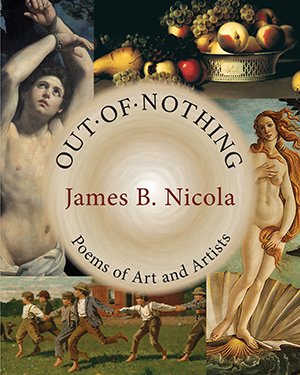
Click Here to Purchase Out of Nothing: Poems of Art and Artists by James B. Nicola
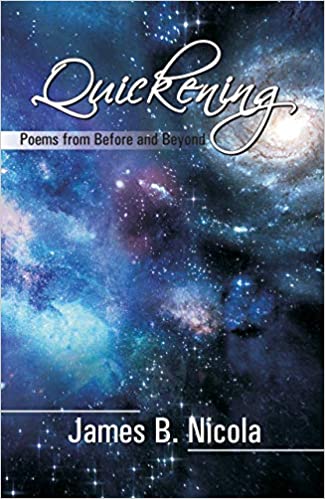
Click Here to Purchase Quickening: Poems from Before and Beyond by James B. Nicola
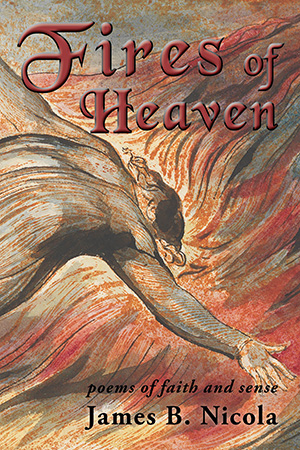
Click Here to Purchase Fires of Heaven: Poems of Faith and Sense by James B. Nicola
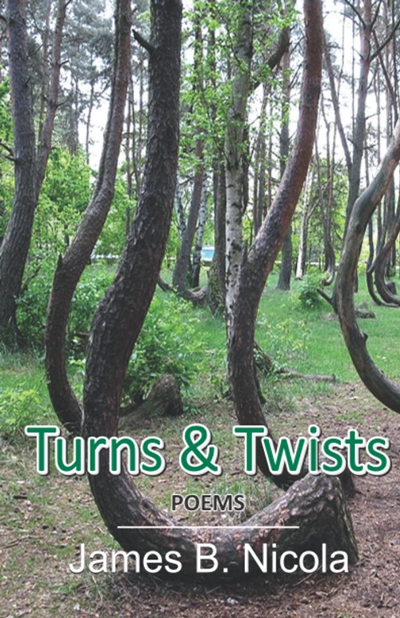
Click Here to Purchase Turns & Twists by James B. Nicola
************************************************************
INTERMISSION ENDS
************************************************************
PAUL: Welcome back, everybody! Please find a seat and we’ll start the open mic…
Okay, I am going to kick off tonight’s open mic with another poem about September, this time one by the early 20th-century American poet George Washington Donaghey, who also served as the 22nd Governor of the U.S. state of Arkansas from 1909 to 1913…
Sweet September Days
I.
There’s a something in the atmosphere, in sweet September days,
That mantles all the landscape with its languid, dreamy haze;
And you see the leaves a-dropping, in a lazy kind of way,
Where the maple trees are standing in their Summer-time array.
II.
There’s a yellowish tinge a-creeping over Nature’s emerald sheen,
And the cattle stand, half-sleeping, in the middle of the stream
Where the glassy pool is shaded by the overhanging limb,
And the pebbly bottom’s glinting where the silvery minnows swim.
III.
The tasseled corn is nodding, and the crow on drowsy wing
Is sailing o’er the orchard where the ripening apples swing,
And the fleecy clouds are floating in the azure of the sky,
And the gentle breeze is sighing as it’s idly wafted by.
IV.
The cantaloupes are ripening in their yellow golden rinds;
And the melons, round and juicy, are a-clinging to the vines;
And the merry, laughing children, in their happy hour of play,
Are a-romping in the meadow and a-sliding down the hay.
V.
The busy bees are buzzing where the grapes with purple blush,
And the hanging bunches tempting with their weight the arbor crush,
And the blue jays are a-wrangling in the wood across the road,
Where the hickory boughs are bending ‘neath an extra heavy load.
VI.
Let your poets keep a-singing about the Springtime gay,
And the blossoms and the flowers in the merry month of May–
But the early Autumn splendor, with its sweet September days,
Eclipses boasted Springtime in a thousand kind of ways!
—George Washington Donaghey
Okay, first up on the open mic is Tom Ewart (also known as tommywart), who was our featured poet for the Virtual Poetorium last March and will be presenting a prose piece inspired by one of the photos in our latest batch of our Imaginarium Photo Poetry Prompts…
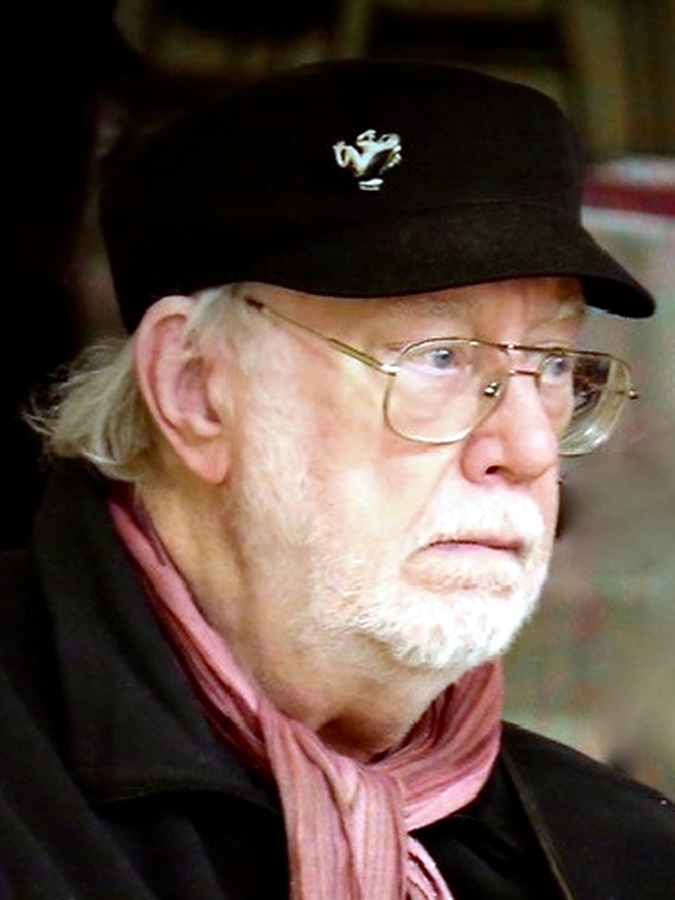
Catch the Wind
It stands, taller than the neighboring trees, pretty
much by itself, at the edge of a bare field: a tall obelisk
of dull silver, replete with curved metal arms at the
top; at the end of each arm is what appears to be a
giant plumber’s helper, a half-sphere a handyman
could use to help … well, clear his toilets, or a
musician to mute his trumpet. Maybe it’s all the same …
They face all which away: beyond the blue into the
blues, into one another, back to back and belly to
belly ‘cause it don’t matter really, into the mist and the mystic,
seeking an easy flush or a bent note.
As such, this edifice serves as the signifier of our times.
We don’t know which way the wind blows, but we can be sure of one thing: it
carries airborne variants that might kill us by the thousands, so mask up.
Meanwhile, all the parts that could fix things are stuck in Congress or on
supercargo ships grounded in silted canals. The atomic clock is saying it is pretty
much too late for us to do anything.
Well, never mind the trumpets of doom, or any fallen angels that might be
blowing them. There’s only one thing to do: Let’s all just pull ourselves up by our
collective bootstraps, look to the future with hope, ask not what, but ask
yourselves, and so on.
Maybe all we need now is a good set of wind chimes.
—tommywart (September 8, 2022)
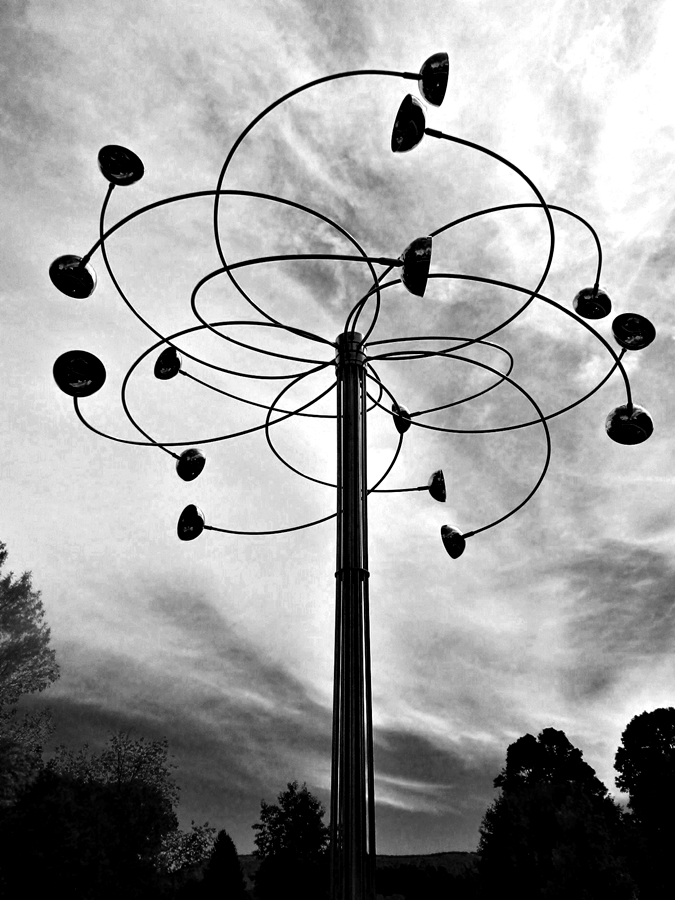
PAUL: Thank you, Tom! Our second poet on our open mic has traveled all the way from the great state of Tennessee to be here tonight. Please welcome to our virtual stage, Diane Puterbaugh…
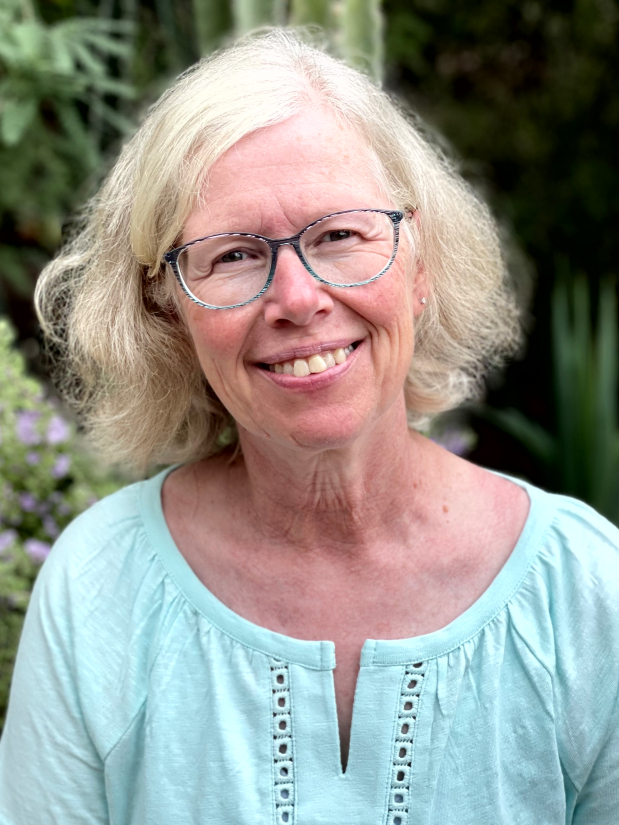
DIANE: I have been spending the summer playing with short form (the following five two-line poems have no titles):
Sirens at noon
his mid-life crisis
—Diane Puterbaugh
Distressed cabinet
fancy paint job for an empty cupboard
—Diane Puterbaugh
Visiting my daughter
a scorpion at the front door
—Diane Puterbaugh
Day moon
permission to nap
—Diane Puterbaugh
Herbal tea
my intuition is usually right
––Diane Puterbaugh
PAUL: Thank you so very much, Diane! I really love that short form, and can’t wait to try my hand at it myself…
Now please welcome to our virtual microphone probably the funniest poet in Central Massachusetts, Joe Fusco Jr…
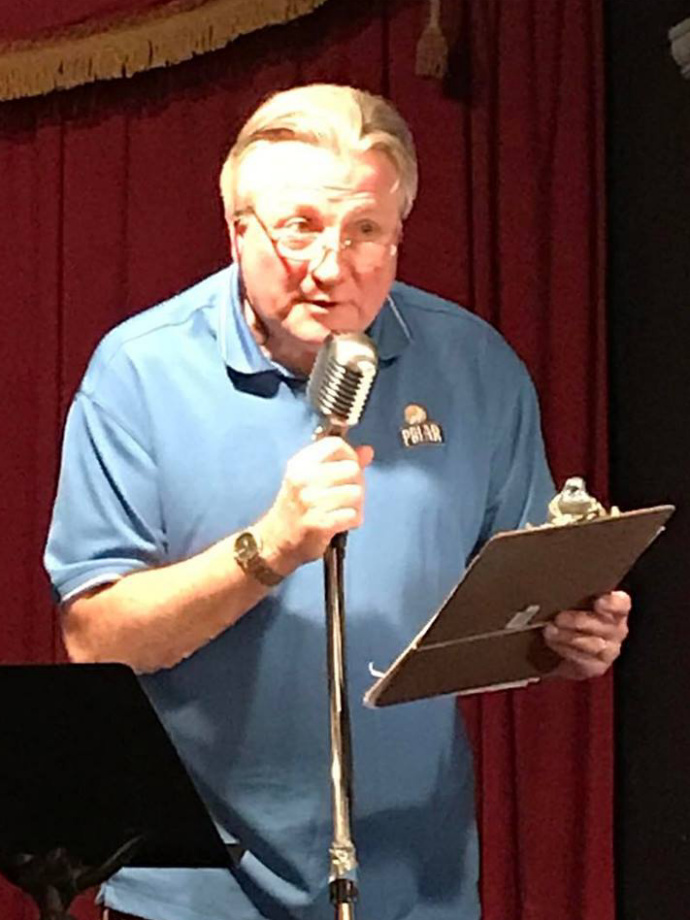
JOE: Here’s 2 Nature poems or the closest I get to Nature poems…
The Nest
I thought they flew South for the Winter.
I thought I could reach out and knock the nest down
Without much fanfare.
I didn’t know they were the state bird.
I didn’t know they were a four-seasons species.
I thought the barren tree meant an abandoned nest.
I thought an empty nest was an opportunity.
(I remembered their incessant warbling in the wee hours of Summer mornings.
I remembered their dive-bombing of my grandchildren every Easter in April.)
I didn’t expect the Hitchcockian response.
I didn’t expect the puffiness of their gray bellies
Their strenuous objection to my intrusion.
I didn’t expect my son and wife to plead for my retreat.
I didn’t expect my heartfelt acquiescence.
—Joe Fusco Jr.
Flipping the Birds
Since Cyndi put up the birdfeeder by the garage,
We’ve seen cardinals, blue jays, robins, and chickadees.
I smile when they compete for the relatively expensive birdseed,
Then frown when I clean their crap off the edges of our above-ground pool,
Thus, confirming my ambivalence towards Nature.
—Joe Fusco Jr.
PAUL: Thank you, Joe! Now please welcome Howard Kogan to the Imaginarium podium…

HOWARD: A different version of this poem was published in my first book, Indian Summer (Square Circle Press)…
The Speed of Light
Taking a break from the endless wake
I walk into the dark yard
behind the funeral home.
The owner is there, smoking a cigarette.
You need something? he asks.
I say, No, and walk further into the dark.
I stare at a sky surprisingly still full of stars.
The owner says, we see all sorts of things here,
this one’s bad.
I don’t answer. I’m beyond words.
He sighs, flips his cigarette
to the ground and heads inside.
Anything you need, he says,
anything, come to the office.
I nod and turn back to the night sky.
I stand in the dark a long time
and suddenly I know, somewhere
far away, out in deep space
something has happened.
Something is coming towards us,
and it’s coming at the speed of light.
—Howard J Kogan
PAUL: Thank you, Howard. And now let’s give a rousing reception to a poet who first took part in the Virtual Poetorium last March. She lives in Connecticut with her husband and daughter and received an MA in English Literature. Her prose and poetry appeared in Sierra Poetry Festival, Trouvaille Review, New Pages, Coffee People Magazine, Black Cat Magazine, Bitchin’ Kitsch and others. Please welcome, Padmaja Battani!

PADMAJA: This poem was first published in Coffee People Magazine…
Oceans Apart…
Every morning I wake up to the aroma
Of freshly brewed coffee, just like when
I was a little kid in my home
And the first thing that comes to my mind is
That I have never tasted
The coffee made by my mother
And may never get to taste it
Many things and many moments
Remind me of my home, my mother
Though sometimes there is no obvious relevance
My wife is so different from my mother
And she is so like her in many ways
I am very fortunate to win their love
And it’s unfortunate that they will never know each other
The way I know each of them
Tough to believe that my mother
Capable of loving anything and everything I like
Could be so callous towards my love of life
Irrationally succumbing to notions of
Religion, race, color, caste
Difficult to forget the words she said
Persuading me to surrender my love
‘Go, marry her; never show your face again
Never bring her near me
You are dead for me…’
I know, there are and will be a lot of things
And moments that remind my mother of me
And an immense pain that accompanies
Though oceans apart, we revive same love
Relinquish to same memories
And carry same agonies
—Padmaja Battani (originally published in Coffee People Magazine)
PAUL: Thanks, Padmaja! Our next poet in the open mic is John Ormsby who was our featured poet in the very first edition of the International Imaginarium this last July…
JOHN: My first poem is in commemoration of HRH Queen Elizabeth II…
Dressed To Empress
Laughing, blue-eyed girl
Reconciled to fate
Ermine laced with pearl
Elizabeth The Great
—John Ormsby
This second piece is just for fun…
Ode to a Toad
Even at your throatiest
You’re not the least melodious
The truth, my precious toady, is
You’re positively odious
—John Ormsby
My last is a last-minute one about the photo of the lederhosen that was part of this month’s batch of Imaginarium Poetry Prompt Photos…
Schnitz Faced
Is beer served at Oktoberfest
So different from all the rest?
For, I would like to know what goes in
To make dudes wear lederhosen
—John Ormsby
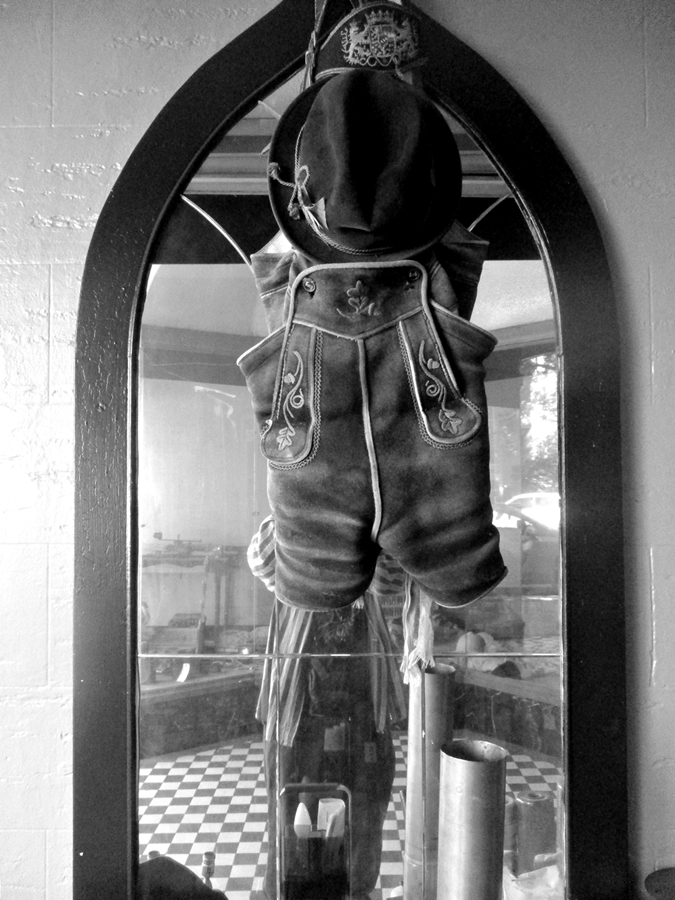
PAUL: Thanks, John! Last, but not least, in our open mic, please welcome Robert Eugene Perry, who was our Virtual Poetorium featured poet last February…
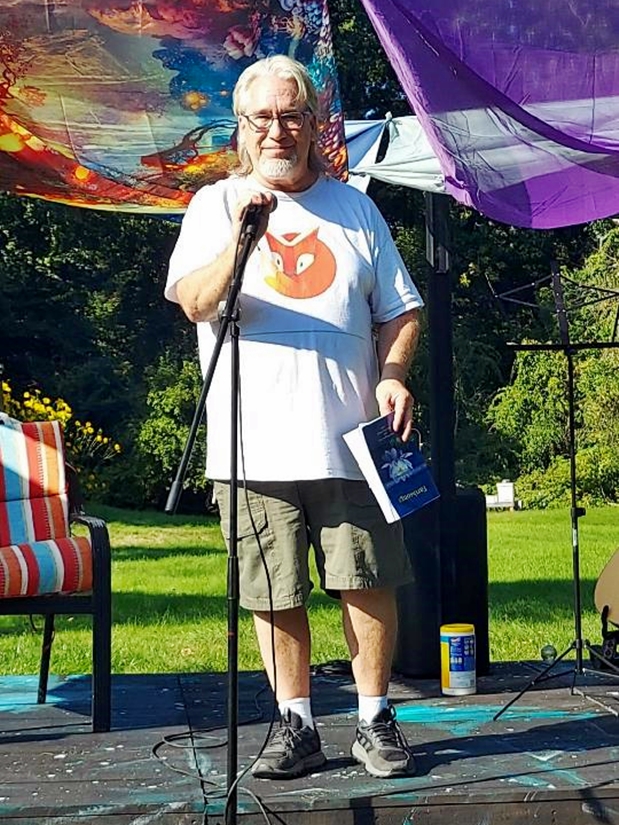
BOB: This was my entry for the 2022 Montreal International Poetry contest back in April. I was recently notified that it did not place, so I can share it now. I went for the big theme…
Blood and Stones
Dead leaves rustling on the old oak
Shaman’s rattle, storm’s end
Snow covers everything. Redbird
Makes his mark, leaves his song
One heartbeat – then gone.
In this moment, the movement
Towards the present tense
Where you will read or hear this
Leaves me longing and breathless,
Hoping for connectedness.
Nearly eight billion souls, each storied
Enough to break your heart. Apart
We are fractals seeking wholeness,
Feigning boldness, wearing bravado like
Armor forged in egoic fire.
Barred Owl calls at midday, midway
Through my thoughts, mindful moment –
Are you still with me, dear one?
Sun low on the horizon, sinking
Into evening shadow, eventide
Unmoors the day, unveils mystery –
Nightfall speared by starlight, bathed
In lunar luminescence.
New moon rises, devoid of light
Fear swells and groans, we grope through
Twisted pathways looking for answers.
Finding only phantasmagoria, we hide our faces
In cold spaces.
Dawn splits the heart of darkness open
Collective memory spills, time of no separation.
One flame fueled this conflagration, now we are
Stardust embers who don’t
Remember.
Red Robin, herald of Spring,
Sing us back to this moment,
Bring us to the water’s edge once again.
—Robert Eugene Perry (2022)
PAUL: Thank you, Bob! Well, that concludes tonight’s open mic. I want to thank everyone who read tonight including our feature James B. Nicola! As always, you were all completely amazing!
For some reason, the month of September has always made me feel nostalgic, so I am going to close out this evening’s poetry show with a poem I wrote specifically about nostalgia composed in a poetic form I invented myself which I call the Decemnet…
A Country Not Only For Old Men
It’s not that nostalgia just inflicts the old,
but that the very young have a lot less to miss –
all their favorite candy bars are still being sold,
they have yet to savor the thrill of their first kiss.
We long for what is gone, what we no longer have,
like the widower who pines for his long-dead wife.
Some say even newborns grow homesick for the womb.
Do memories provide comfort, and act as a soothing salve?
Maybe the dead eternally reminisce about life,
And the resurrected feel sentimental for the tomb?
—Paul Szlosek
Well, good night everyone! I hope that you enjoyed the second edition of the International Imaginarium For Word & Verse, and we will see you all this Thursday at our live Poetorium at the Starlite show in Southbridge on September 29th featuring the incredible Jennifer Freed! I haven’t decided yet if we will have another Imaginarium or go on hiatus in October, but I definitely hope to see you all back here again in November when the Imaginarium’s featured poet is scheduled to be the 2021 Stanley Kunitz Medal Winner, Eve Rifkah…
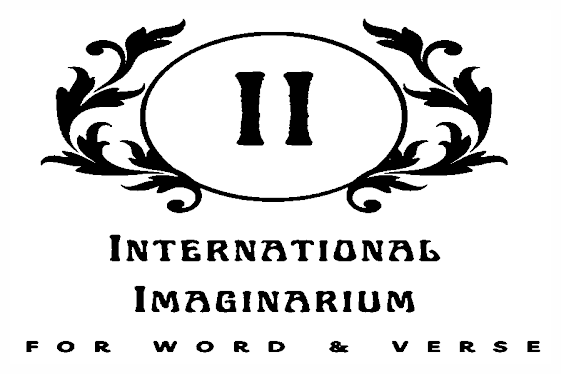
Comments
Post a Comment